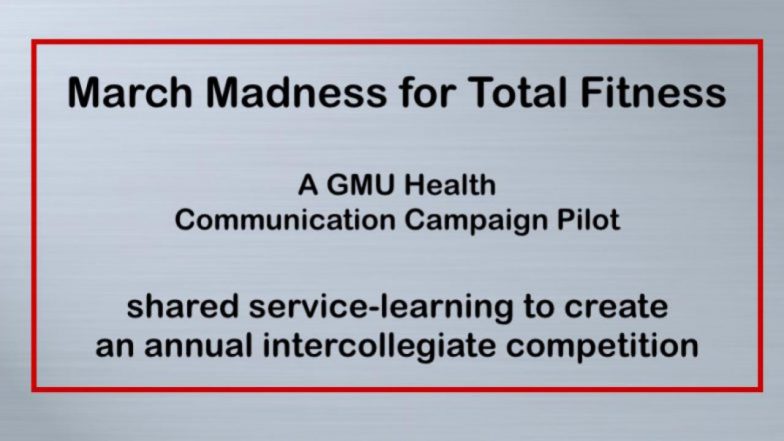Summary
This was a 4-course (graduate & undergraduate) pilot, to test the use of a shared service-learning project added to existing courses to develop an intercollegiate fitness challenge to coincide with March Madness.
GMU health communication pilots were presented at 5 conferences:
2010 NIH mHealth Summit
2010 American Psychological Association
2011 Association for Prevention Teaching & Research
2011 Council of University Directors of Clinical Psychology
2012 Living and Leading with Resilience (George Mason University)
OnAir Post: Pilot: March Madness for Total Fitness

